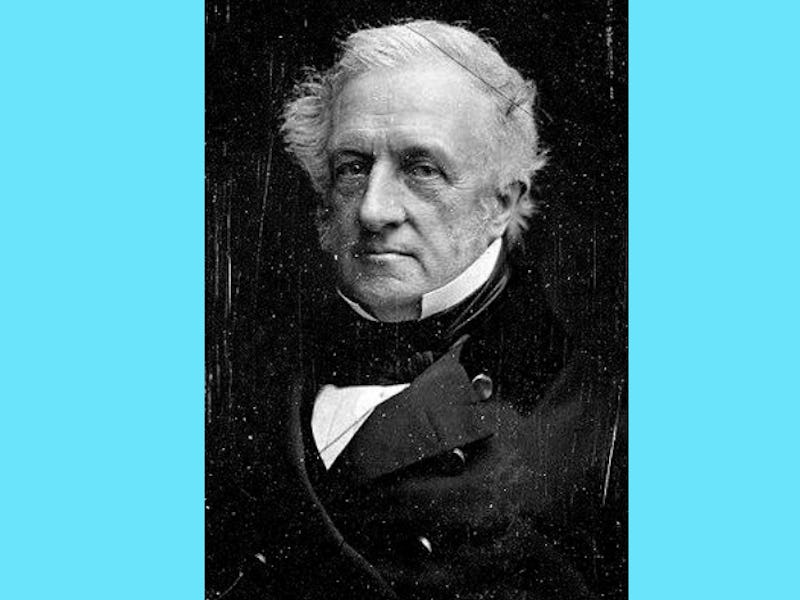The Cultural Impact of George Peabody, the First Modern Philanthropist
There are a lot of things named "Peabody.'

On Friday, Google celebrated the life of philanthropist George Peabody, the American businessman dubbed the “father of modern philanthropy.” Peabody, born into a poor Massachusetts family in 1795, attended school for a few years in his teens before opening a dry goods store in Washington, D.C. While serving in the army during the War of 1812, Peabody met an older merchant who offered to make him a partner in his dry goods importing business when he was only nineteen. Peabody became a quick success as a merchant, and in 1835 he established the George Peabody & Co. merchant bank. Two years later, he moved to London to run the bank, and remained the for the rest of his life.
Throughout his life and career, Peabody used his increasingly impressive fortune to donate massive amounts of money to charitable causes in the United States and England. In fact, Peabody is believed to have donated around half of his $16 million fortune (which would be about $281 million today) over the course of his life.
Through these donations, Peabody left an indelible mark on history — and his name on a lot of things. Here are some of his most notable contributions:
The Peabody Institute
Peabody’s philanthropy contributed considerably to funding academia and the arts. In 1857, the business man founded the Peabody Institute of Baltimore in the city in which he lived for two decades. The Institute included an art gallery, music conservatory, reference library and a lecture hall. After that, Peabody funded the construction of other Peabody Institute Libraries in the eastern U.S. — one in Vermont, Massachusetts, and Washington, D.C.
An illustration of Peabody Square Model Dwellings in Blackfriars Road, London. These buildings, which still exist today, were constructed in the typical style of early Peabody Trust developments.
The Peabody Trust
In 1862, he founded the Peabody Trust, originally named the Peabody Donation Fund, and now commonly known simply as Peabody. The trust was meant as a means to build better and more stable housing for London’s poor. Writing in The Times in 1862, Peabody said the housing was meant to “ameliorate the condition of the poor and needy of this great metropolis, and to promote their comfort and happiness.” Today, Peabody is one of London’s largest housing associations, with over 55,000 properties, housing over 111,000 residents.
The Peabody Education Fund
Following the Civil War, Peabody toured the American South from 1866 to 1867. Realizing parts of its education system was in destitute shambles, Peabody started the Peabody Education Fund, donating $2.1 million to fund primary and secondary education in the southern states and West Virginia. The fund lasted for 47 years and was put towards training teachers and supporting the needs of public schools.
Peabody Bay
Peabody funded the Arctic expedition of the famous American explorer Elisha Kane, and in 1854, Kane dedicated the waterway off the northwest coast of Greenland as “Peabody Bay.” It was later renamed to Kane Basin, but Peabody Bay is still the name of a smaller bay on the eastern part of Kane Basin.
The Town of Peabody
In 1868, the town of South Danvers, Massachusetts, where Peabody was born, changed its name to Peabody to honor the memory of the benevolent business man.
With files from Mike Brown.